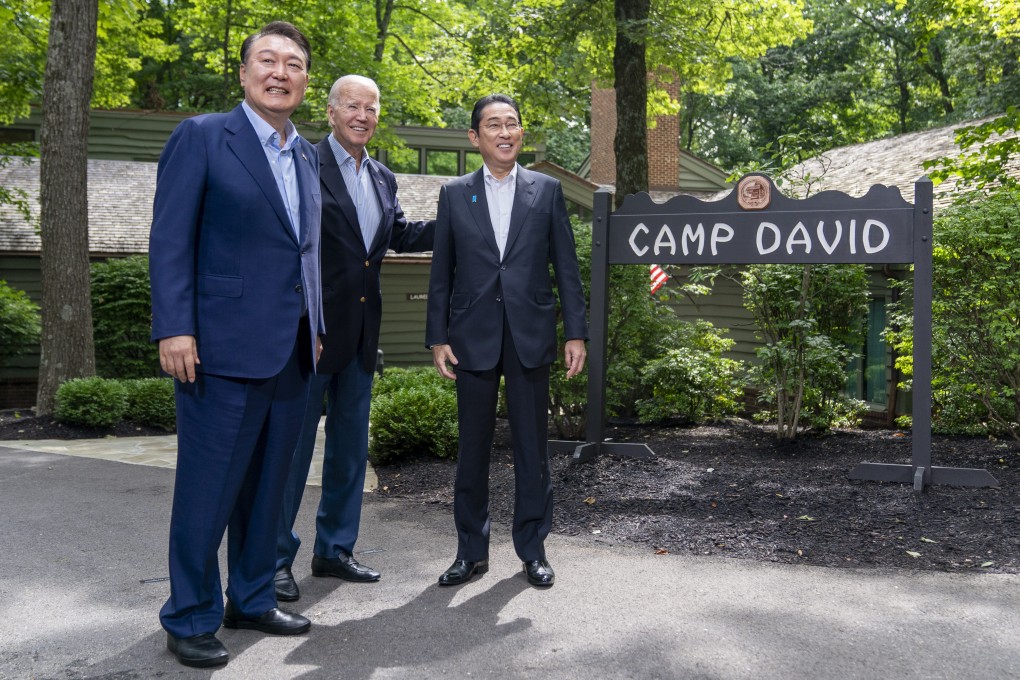Advertisement
East Asia’s ‘seismic shift’: why China sees the Camp David summit as the start of a de facto military alliance
- Leaders from the US, South Korea and Japan forge a new partnership to hold joint military drills and share intelligence
- Beijing caught off guard by Seoul’s change of heart under new president, observer says
Reading Time:6 minutes
Why you can trust SCMP

As Washington inches closer to a de facto military alliance with Tokyo and Seoul, pundits have warned of the destabilising impact it could have on the regional power balance amid fears over escalating tensions between China and the US.
US President Joe Biden hailed the “new era” of a close security partnership between the three powers at a landmark trilateral summit held at Camp David over the weekend. While Biden also insisted the summit was not targeted at Beijing, a joint statement from the three powers voiced concerns about China’s “dangerous and aggressive behaviour” in the South China Sea and its policy towards Taiwan.
On Monday, Chinese foreign ministry spokesman Wang Wenbin lashed out at the summit, which he said had “smeared and attacked China” and was “a deliberate attempt to sow discord between China and our neighbours”. He compared the partnership to other US-led alliances such as Aukus with Britain and Australia and the Quad with India, Japan and Australia.
Advertisement
“We see two trajectories in the Asia-Pacific [region] today,” Wang said. “One features efforts to advance solidarity, cooperation and economic integration. The other features attempts to stoke division and confrontation and revive the Cold War mentality.”
Seong-hyon Lee, a senior fellow at George H.W. Bush Foundation for US-China Relations, said by formalising the cooperation between the countries, the Camp David summit marked “a de facto military alliance without explicitly stating so”.
“We are witnessing a seismic shift in the East Asian security landscape that we haven’t seen for the last 100 years,” he said, noting that Biden, South Korean President Yoon Suk-yeol and Japanese Prime Minister Fumio Kishida agreed to hold summits and joint military drills annually.
Advertisement
Advertisement
Select Voice
Choose your listening speed
Get through articles 2x faster
1.25x
250 WPM
Slow
Average
Fast
1.25x
